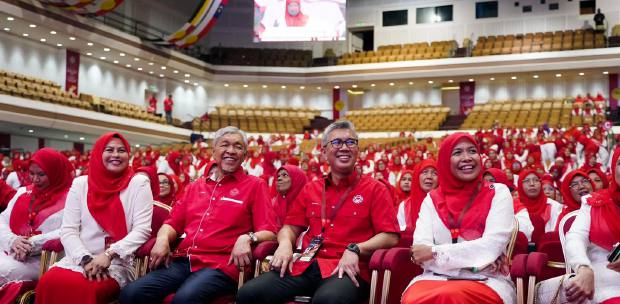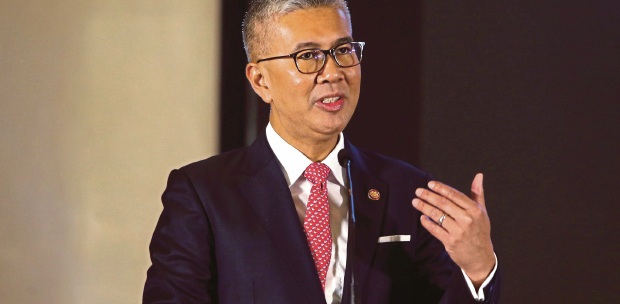To be or not to be, to do or not to do. This perhaps reflects the tight spot or situation that Tengku Datuk Seri Zafrul Tengku Abdul Aziz has to grapple with when he presents the 2023 Budget today.
It's finally D-Day after the 2023 Budget has been quickened by three weeks. This is after the finance minister has been strategising with scores of tax and socio-economic experts over the past few months on what is good for the country, especially how he can catalyse a solid growth agenda and put more money in the people's pockets.
Chiefly, he has to consider whether his budget presentation should be populist or not as the government is toying with the idea of holding the general election as early as before the year is out.
And to do that and be victorious as well, the government of the day must have at its disposal much needed funds to entice the voting population to put it through the ballot box.
But some quarters are questioning whether the government is standing on solid ground by dishing out goodies this year with funds that are actually meant for next year. Some lawyers contend that the 2023 Budget is void if Parliament is dissolved before the passage of the Supply Bill.
On this score, the laws of the land are clear in that Parliament has the power to authorise expenditure for unspecified purposes in respect of any financial year even after the august house has been dissolved prior to the passing of the bill.
According to a tax consultant who was previously with the Inland Revenue Board, this is nothing new as it had been done in the past. A former senior Treasury official explained that this was akin to the government of the day "borrowing money for a specific purpose and for a specific period" as it had to ensure that "it has the ammunition to fight the war, in this case the election".
Once the election is over, Parliament will reconvene to approve the other parts of the budget meant for the incoming year, which can be done immediately in the following year.
Tengku Zafrul has much on his plate to ensure that the rakyat's disposable income can be increased against the onslaught of inflation, rising food prices and a depreciating ringgit.
He has to make sure that there are enough investments to provide the public with much-needed jobs and to have adequate funds to train the country's human capital in schools and universities so that they can become skilful and productive citizens.
To attract investors, the government needs to make the tax infrastructure more flexible and attractive so that the cost of doing business in Malaysia can be lowered further to compete against competitors in the region.
Greater clarity is warranted in the nation's tax regime so that there are no loopholes that can trigger corrupt practices.
Outmoded policies that give rise to rent-seeking abuses ought to be done away with to strengthen Malaysia's economic resilience. There is a need to broaden the country's tax base to elicit a more balanced approach to revenue collection and strengthen the overall economy.
All in all, Tengku Zafrul has to ensure that ministries and agencies sing in unison with the Treasury to make Malaysia a roaring economic tiger again.
The writer is a former Bernama chief executive officer and editor-in-chief
The views expressed in this article are the author's own and do not necessarily reflect those of the New Straits Times






